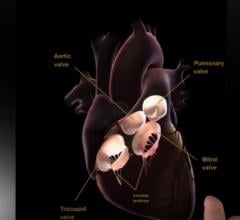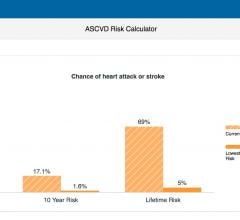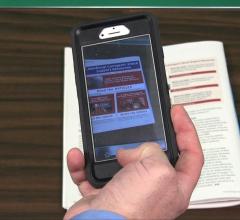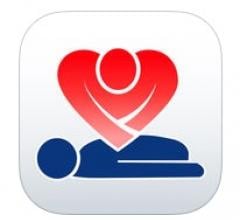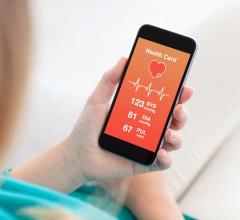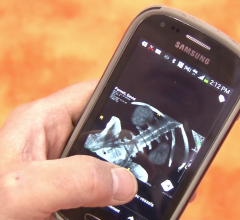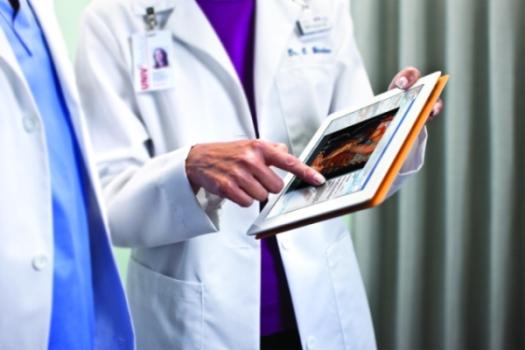
December 28, 2012 — Pulse Oximetry Screening is a life-saving test that can detect critical congenital heart defects (CCHD) in newborn babies before an infant is discharged from the hospital. The test is easy to perform, however, appropriate interpretation of the results can be challenging. In order to aid health care providers in interpreting the results of the screening, Children's Healthcare of Atlanta has created the Pulse Ox Tool, a ground-breaking app for smart phones that automates the Pulse Oximetry Screening test and improves the accuracy of detecting children with possible CCHD.
"Research shows that this simple screening test for newborn babies can help prevent the delay of diagnosis of critical congenital heart defects in infants," says Matt Oster, M.D., M.P.H., a pediatric cardiologist at Children's Sibley Heart Center who led the development of the digital tool. "We are thrilled to premiere this revolutionary tool to newborn nurseries and pediatric hospitals across the country. The convenience of downloading the app for free to your smart phone makes increased precision of care available to all providers."
In 2011, the Secretary of Health and Human Services committee, led by William Mahle, M.D., a pediatric cardiologist at Children's Sibley Heart Center, recommended that pulse oximetry screening be added to the routine uniform screening panel that every newborn baby receives after birth. Mahle led a team that developed the methods for implementing the screening, which includes an algorithm that uses pulse oximetry readings to determine whether patients need immediate further testing for CCHD. Without this test, many babies with heart defects show no symptoms at birth but go into heart failure a few weeks later.
While not a difficult equation, the mathematics required to manually compute the algorithm sometimes produces user error. To remedy this, Oster led a team to create the Pulse Ox Tool, an app for smart phones that automates the calculation of the algorithm, thereby decreasing the chance for errors. Upon testing the Web-based Pulse Ox Tool at Children's Sibley Heart Center, it was determined that the computer-based algorithm's error rate was significantly lower than when the algorithm was manually computed by providers.
Pulse Ox Tool is now available for free download on iTunes, Google Play and Windows, as well as in a web-based version at www.pulseoxtool.com.
Research efforts for this application are being conducted under the Children's Center for Cardiovascular Biology. This effort is part of the Emory+Children’s Pediatric Research Center led by Children’s Healthcare of Atlanta and Emory University, including partnerships with the Georgia Institute of Technology and Morehouse School of Medicine.
For more information: www.choa.org

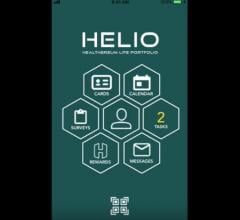
 April 05, 2019
April 05, 2019 
